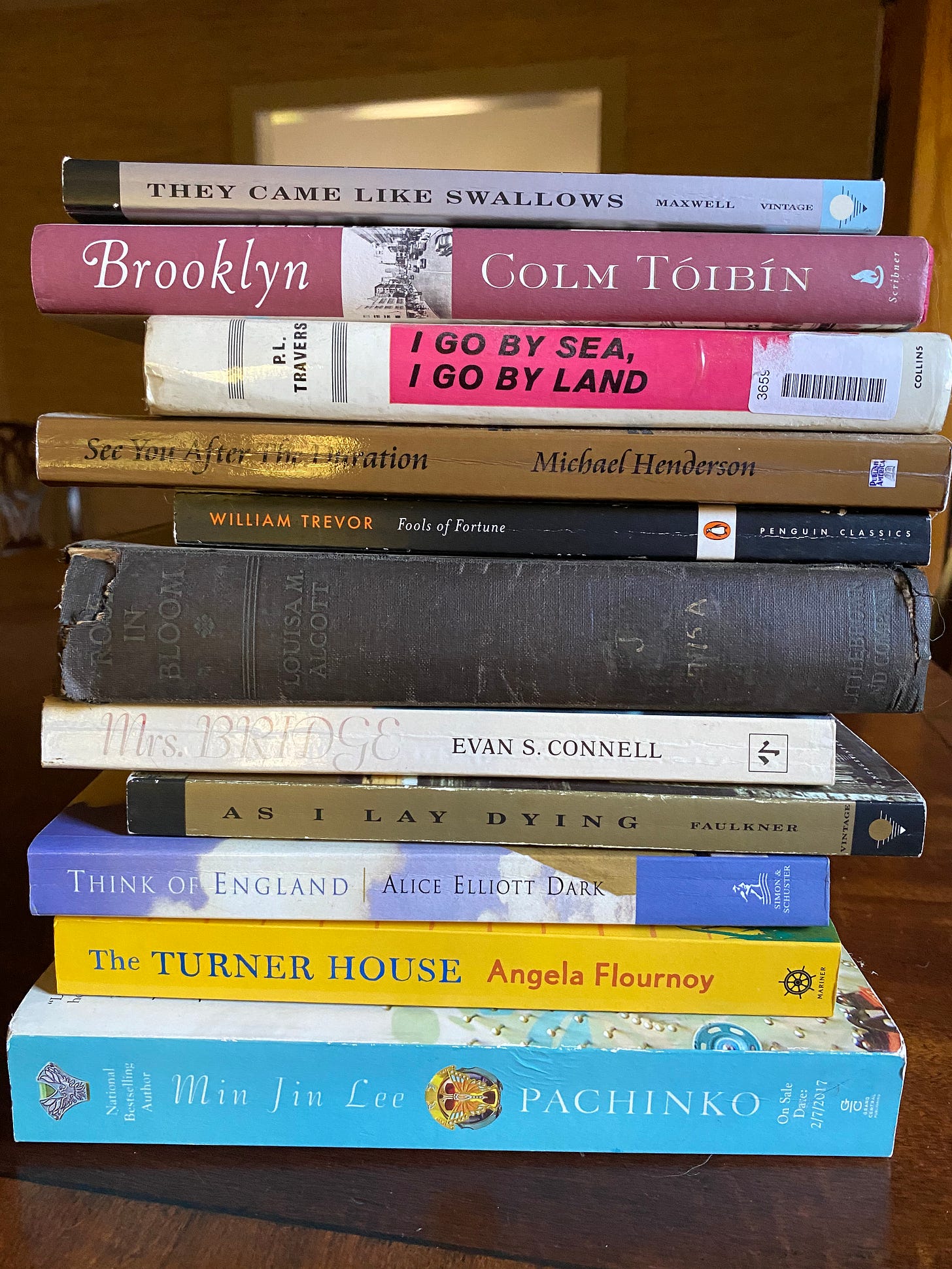In the midst of a recent event celebrating Yiyun Li’s newest book, The Book of Goose, Idra Novey spoke about how Li had mentioned that when she began writing in her twenties, she was old enough to choose her “literary genes.” Li said that the writers that she admires, the writers that she aspires to emulate, are Russian and Irish. Then she said, “Sometimes I wonder if we can’t have a genealogy just by the books we read. That would be like a dream world, right? Not by your blood…that’s my nerdy wish.” And Novey was equally enthralled with this idea: “You can send away a sample and find out your DNA of who you’re related to. Or you could send your writing somewhere, your literary DNA, and someone could do a diagnostic on it and say, ‘I see a dash of William Trevor here…’”
The day after I heard this conversation, the writer John Manuel Arias posted the following on Instagram:
Thinking about all the books that made my novel possible 🙏🏼📚
The Dew Breaker - Edwidge Danticat
Mamita Yunai - Carlos Luis Fallas
The Painted Canoe - Anthony C. Winkler
Beneath the Lion’s Gaze – Maaza Mengiste
The God of Small Things - Arundhati Roy
The House of the Spirits - Isabel Allende
Mrs. Dalloway - Virginia Woolf
Mr. President - Miguel Ángel Asturias
The Family of Pascual Duarte - Camilo José Cela
Century of the Wind - Eduardo Galeano
Arias’s debut novel, Where There Was Fire, will be published in September 2023. Such a wonderful sense of the book is provided by this list—it is broad and deep and hints at so much that the novel might contain.
I love that these two events happened side-by-side, a day after a night: great minds thinking alike. We each have a list of writers that are important to us, writers who have helped us become who we are as a reader and as a writer. A book, though, is in conversation with other books; each book has its own fingerprint, which includes the books that in some way—large or small—helped it become what it is.
There are books that influence the structure. There are books that cover a certain place or time. There are books that use language in a unique way. And there are far too many books to name—I think every book I read teaches me something and those lessons appear in my writing, uncredited and often unrecognized. There are also books that have simply made me feel a certain way and that is the thing I try to capture in my writing, even though the book itself may feel worlds away from the book that is being written.
But I love this idea of a list of books to help define a new book. When writers send query letters to agents, they are asked to provide comps, a few books that the new book mimics or reflects. I have found this both reductive and intimidating. On one hand, it seems to minimize the new work, seeing it only as a reflection of another. Yes, every book is part of a legacy, but it is also its own unique thing. Couldn’t a book be seen purely for what it is? And, on the other hand, many writers are reluctant to say that their book is like that of a beloved master. That seems a bit of a high bar, especially for a debut author. Perhaps, instead, we should follow Arias’s example and list the books that helped the novel come into being. A comprehensive list is far more interesting. Does that not tell us more about the book than trying to imagine, say, the marriage of The Great Gatsby and Olive Kitteridge?
So I decided to give it a go. To identify the writers that make me who I am as a reader and a writer, I started by going far back in time, to the first writers that I loved. Laura Ingalls Wilder. Helen Dore Boylston. Louisa May Alcott. Charlotte Brontë. Then, later, Flannery O’Connor. James Joyce. Gabriel Garcia Márquez. Grace Paley. Later, still: Arundhati Roy. William Trevor. Jhumpa Lahiri. Alice Elliott Dark. Elizabeth Strout. Lauren Groff. Colm Tóibín. Yiyun Li. Jamel Brinkley.
And here’s an initial pass for my debut novel, Beyond That, the Sea. It’s not a perfect list, and it’s not in any particular order, but it’s a start:
Rose in Bloom, Louisa May Alcott
As We Lay Dying, William Faulkner
Brooklyn, Colm Tóibín
Fools of Fortune, William Trevor
Think of England, Alice Elliott Dark
I Go By Sea, I Go By Land, P.L. Travers
Atonement, Ian McEwan
See You After the Duration, Michael Henderson
Mrs. Bridge, Evan S. Connell
The Turner House, Angela Flournoy
They Came Like Swallows, William Maxwell
Pachinko, Min Jin Lee
What writers and books would be on your lists?
See you in two weeks.




Honored to be in your stack, Laura. Can't wait for Beyond That, The Sea, to be published. I'm going to make a list of literary DNA too. Maybe you should start and Instagram account?